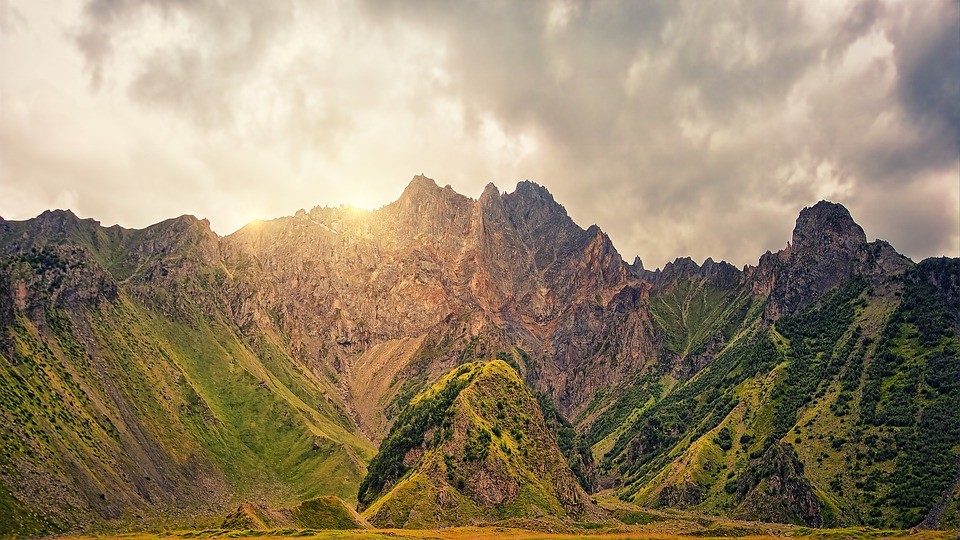As Russian missiles rain down on Ukraine’s oil and fuel sector infrastructure, tensions between Moscow and the Circassians, both those living inside Russia and abroad, have reached a boiling point, according to Paul Goble of the Jamestown Foundation. Located in territory inside Russia, north of Georgia, and extending down toward Armenia and Turkey, the indigenous Circassian population has longed for their freedom for well over a century. Last Saturday Putin prohibited the annual celebration commemorating the deportation of Circassians from their homeland inside Russia 168 years ago and threatened to arrest anyone who participated in events marking the date.
In 1864, the Russian Czar committed what the Circassian people call an ethnic cleansing or “genocide” of the minority population. Later, under the Soviet Union, the population was divided into various subgroups and multiple, artificially contrived administrative territories in an effort to suppress the Circassian’s desire for their own national identity in a single Circassian Republic. Today, Putin fears he is facing a reinvigorated population supported by overseas Circassians. He is determined to ensure that the 5 million living abroad cannot return to their homeland and change the ethnic mix in the North Caucasus region. Putin is using the Duma to try to pass legislation to keep the area permanently divided and the diaspora from returning home under the guise of maintaining stability in the region.
Circassians living inside Russia recently made strong public declarations of solidarity with the Ukrainian people who are resisting Putin’s “special military operation.” The population also is growing increasingly angry over Putin’s suppression of the identities of other minority peoples living inside the Russian Federation. Goble argues that the risk of armed conflict in the region is growing more acute and may develop into an outright clash in the coming weeks. “…the Circassians have fought back, viewing the much-delayed 2020 Russian census as a means to reunite Kabards, Cherkess, Adygeys and other parts of the Circassian nation under a single “Circassian” umbrella,” he says.
Fewer than 700,000 Circassians live inside Russian territory today. In 1864 many fled to Syria to avoid genocide. Putin is concerned now that those Circassians living inside worn-torn Syria want to return to their homeland and will emerge as a long-term threat to Russian control of the territory and ultimately lead to its de-Russification. Stanislav Ivanov, a senior historian at IMEMO in the Russian Academy of Sciences, noted that “the project of a Greater Circassia has real support and a sufficient number of supporters abroad and in the North Caucasus.” In a February 22, 2022, Jamestown Foundation report, Goble pointed out that “If the two come together, he [Stanislav] warns in the influential Voyenno-Promyshlenny Kuryer, it will almost inevitably create serious problems for Russian rule.”
Fatima Tlis, a longtime Circassian activist with the Voice of America, recently shared a copy of her remarks made in a video presentation to the European Parliament, notes Goble. She argued that “it is imperative for the restoration of peace and security in Europe that we understand the roots of Russia’s brutality and violence” in Ukraine “because the seeds of Bucha had been planted in Sochi and hundreds of towns and villages of Circassia that exist no longer… Russia shattered the Circassian territory into different artificial provinces to further marginalize the nation and break its unity and political significance.”
The new emerging political energy generated by movements in- and outside Russia concerns Putin, who fears that calls for independence will incite other populations to rebel against Russian authority. Putin is wrong in believing that inside the body of every Ukrainian beats a Russian heart. He also is wrong that he can suppress Circassians who view themselves, like Ukrainians, as a people distinct from Russians. As Russophobia spreads across the world, Western leaders must consider how far Putin is willing to go to achieve his territorial objectives. If the Russian leader cannot conquer Ukraine, he may choose instead to move east and south into the Caucasus and attempt a second annihilation of the Circassian population. Russia’s other “special military operation” in Syria cost hundreds of thousands of lives. It is not beyond the ken to be gravely concerned that Putin could move the war east and commit a new genocide. Strategically positioned between the European and Asian oil export markets, the region bridges the East with the West. NATO abuts Russia’s sphere of influence there and it is an oil-rich area which Chechen-trained fighters, along with their financial networks, are aiding jihadi groups fighting in and around Syria. Its importance to Russia is not lost on Putin.
Daria served in the U.S, State Department
Photo: Caucasus mountains
